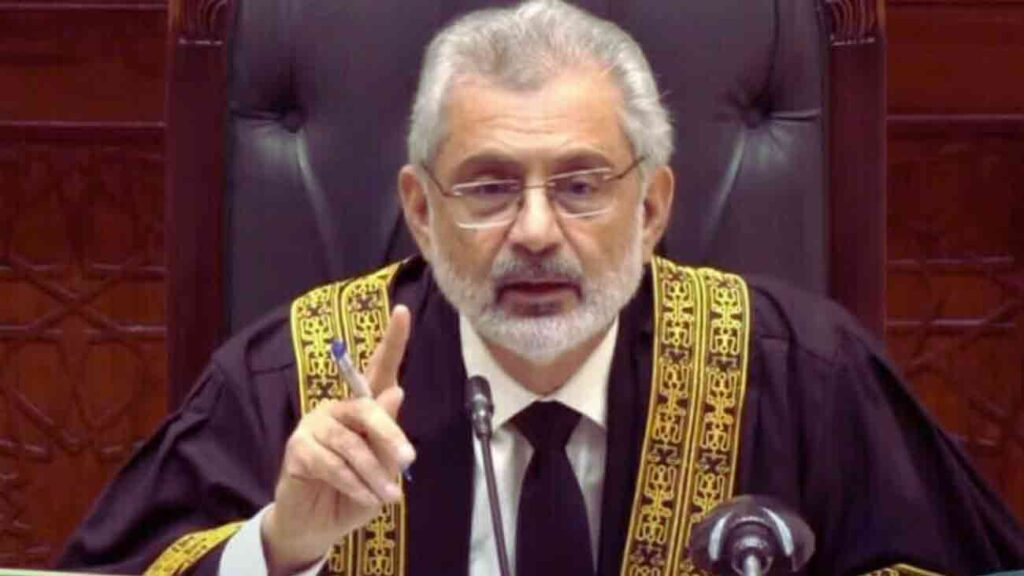- Faqeer Hussain
- 1 Hour ago

CJP Isa says SC’s July 12 verdict on reserved seats not binding
-
- Web Desk
- Oct 22, 2024

ISLAMABAD: In a major development, Chief Justice of Pakistan (CJP) Qazi Faez Isa on Tuesday questioned the enforceability of the Supreme Court’s July 12 verdict in the reserved seats case, stating that the ruling was not binding since the appeals remain undecided.
The July 12 order issued by eight members of the Supreme Court declared that the 41 returned members of the National Assembly were part of the Pakistan Tehreek-e-Insaf (PTI) parliamentary party.
The Pakistan Muslim League-Nawaz, Pakistan People’s Party and the Election Commission of Pakistan (ECP), however, had challenged the verdict, and the appeals had not yet been heard.
On September 14, the Supreme Court eight-member bench headed by Justice Mansoor Ali Shah reprimanded the ECP for not implementing the July 12 judgment.
On October 18, the same Supreme Court members reiterated that amendments made to the Elections Act, 2017, through the 2024 Elections (Second Amendment) Act, did not affect the July 12 ruling, and the ECP must follow the order.
The Supreme Court bench had clarified that the parliamentary amendment to the Elections Act did not have retrospective effect and cannot overturn the apex court’s earlier judgment on reserved seats.
The Supreme Court judges had issued the second clarification in response to a request by the ECP.
CJP Isa, however, voiced concerns over the subsequent clarifications issued by the Supreme Court judges, questioning how such clarifications could be issued when the appeals were not on the cause list. He also summoned explanations from the Registrar Office for issuing them.
In a minority opinion issued on Tuesday, CJP Isa highlighted constitutional concerns and legal irregularities in the July 12 order and the two clarifications that followed. He argued that since the appeals had not been conclusively decided, the verdict could not be considered binding under Article 189 of the Constitution. Similarly, contempt of court proceedings for non-compliance could not be initiated.
Isa also pointed out that the July 12 order deviated from established judicial procedures and criticized the majority judges for effectively legislating by creating a “virtual court” to handle applications from the ECP and PTI. He argued that this was unprecedented and contrary to constitutional principles.
Furthermore, CJP Isa expressed concerns about how the clarifications were issued without notifying the parties involved or allowing them to be heard, calling it a violation of judicial transparency and openness. He warned that such actions could undermine trust in the judiciary.
The minority opinion emphasized that a case must be fully decided and disposed of before being enforceable, and criticized the majority for not adhering to this principle.






